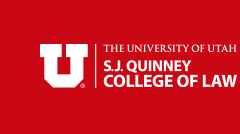Utah OnLaw: The Utah Law Review Online Supplement
Article Title
Abstract
Short of its two critical premises—that sports labor restraints may harm players but benefit fans and the sport’s popularity, and that the Sherman Act must always step aside to protect the “entire collective bargaining process”—Professor LeRoy’s thorough research loses much of its normative force. This provocative contribution is particularly revealing in one respect that he does not explicitly mention, however, akin to Sherlock Holmes’ famous insight that the telling clue was that the sleeping dog did not bark.34 All of the lawsuits Professor LeRoy studied involved challenges by union-represented players; none involved challenges by the principal beneficiaries of the Sherman Act (sports fans)35 or, on their behalf, federal or state attorneys general. Even Judge Edwards, whose lower court opinion in Brown I was affirmed by the Supreme Court, acknowledged that under Jewel Tea a “crucial determinant” in a balanced accommodation of labor and antitrust is the “relative impact on the product market and the interests of union members.”36 This perhaps suggests that the accommodation that Jewel Tea requires would be relevant in litigation brought by consumers, who would be required to show (as was true in that landmark case) an actual anticompetitive effect in the product market—the content of sports league championship series.
Recommended Citation
Ross, Stephen F.
(2013)
"Accommodating Labor and Antitrust,"
Utah OnLaw: The Utah Law Review Online Supplement: Vol. 2013
, Article 11.
Available at:
https://dc.law.utah.edu/onlaw/vol2013/iss1/11



